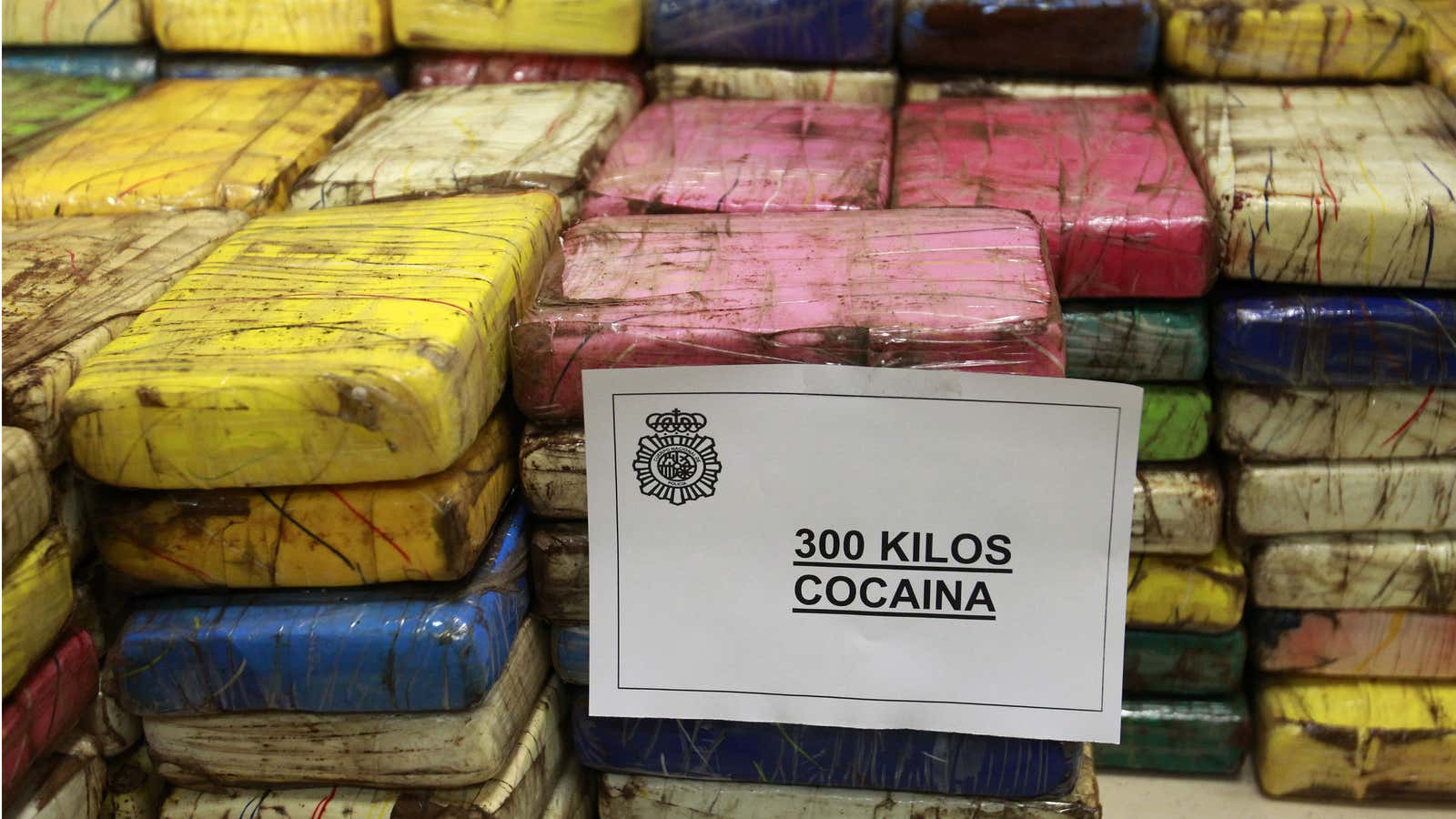Drugs are so prevalent in some cultures it’s now common to find traces of cocaine and heroin clinging to our fingertips—even those of us who’ve never used them.
That might come as a surprise to people who don’t dabble. Still, researchers with the University of Surrey in the UK discovered that about 13% of non-users they tested were unwittingly carrying traces of illegal substances with them through everyday life. The results of their work were published this week (March 22) in the journal Clinical Chemistry.
To come to that conclusion, the scientists administered fingerprint tests on 65 people—15 of which admitted to taking either cocaine or heroin within 24 hours of the test. Among the 50 people who claimed to not be drug users, 13% of the tests came back positive for traces of cocaine, and 1% tested positive for heroin.
“Believe it or not, cocaine is a very common environmental contaminant—it is well known that it is present on many bank notes,” said researcher Melanie Bailey in a press release. “Even so, we were surprised that it was detected in so many of our fingerprint samples.”
With only 65 people involved in the study, carried out in Great Britain, it was a relatively small sample size. Still, it adds to the body of knowledge on the subject.
The work adds a layer of important knowledge for people working on the cutting-edge of drug testing. The study, carried out by independent scientists, was co-funded by a company called Intelligent Fingerprinting, which has developed a commercially available portable drug test that analyzes the sweat in people’s fingerprint samples. The test takes about five seconds to administer and can detect amphetamines, cannabis, cocaine, and opiates.
“It’s clear that fingerprint testing is the future of drug-testing,” wrote the lead author of the study, Mahado Ismail, in the release. “Our study will help to add another robust layer to fingerprint drug testing.”
